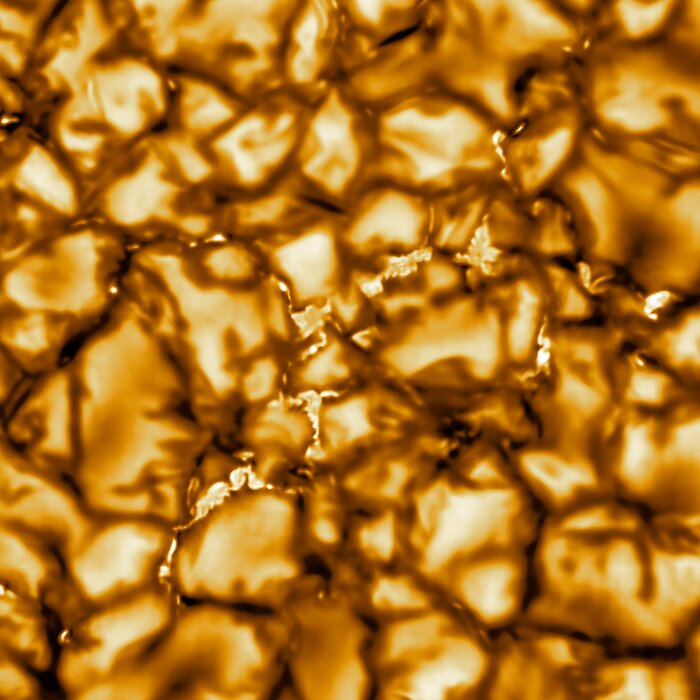NSF’s Inouye Solar Telescope First Light (cropped)
The Daniel K. Inouye Solar Telescope has produced the highest resolution image of the Sun’s surface ever taken. In this picture taken at 789nm, we can see features as small as 30km (18 miles) in size for the first time ever. The image shows a pattern of turbulent, “boiling” gas that covers the entire sun. The cell-like structures – each about the size of Texas – are the signature of violent motions that transport heat from the inside of the sun to its surface. Hot solar material (plasma) rises in the bright centers of “cells,” cools off and then sinks below the surface in dark lanes in a process known as convection. In these dark lanes we can also see the tiny, bright markers of magnetic fields. Never before seen to this clarity, these bright specks are thought to channel energy up into the outer layers of the solar atmosphere called the corona. These bright spots may be at the core of why the solar corona is more than a million degrees!
This image covers an area 8,200 × 8,200 km (5,000 × 5,000 miles, 11 × 11 arcseconds).
Credit:NSO/NSF/AURA
About the Image
| Id: | NSO-DKIST-firstlight-crop |
| Type: | Observation |
| Release date: | April 1, 2024, 11:38 a.m. |
| Size: | 1640 x 1640 px |
About the Object
| Name: | Sun |
| Category: | NSF Infrastructures (other) Solar System |
Wallpapers
Colors & filters
| Band | Wave-length | Tele-scope |
|---|---|---|
| Optical i | 789 nm | Daniel K. Inouye Solar Telescope CCD |
